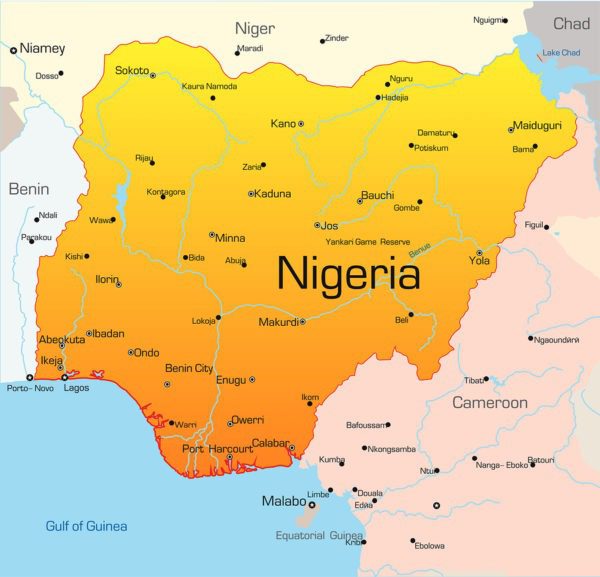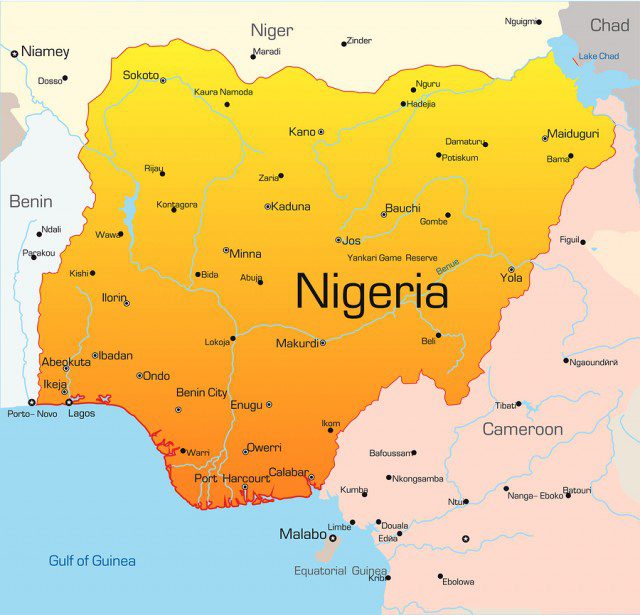National Issues
Diversifying The Nigerian Economy, Pathway To Achieving Economic Stability

Nigeria wasted much of her opportunities to break away from underdevelopment despite her massive natural and human resources endowments, in her chequered political history spanning over half a century. No wonder there has been hardly any consensus on the justification for Nigeria’s centenary celebration. Regrettably, Nigeria has dwelled only on her huge crude oil resources as the major source of revenue, driving a monolithic economy for years in spite of the enormous developmental challenges she faces. More painfully, the oil resources are being mismanaged and a substantial part of it has gone on rentseeking and red-tapism common in Nigerian bureaucracy.
At the turn of this 21st Century with the fiery winds of globalization and monumental development challenges blowing, Nigeria has little choice but to pull herself
and all the resources and people at her disposal together to turn her destiny around by exiting the ranks of The Poor and Developing Countries and become one of the twenty (20) most industrialized nations by the year 2020 supposedly a belated arrival anyway. This writer is of the opinion that the most strategic and competitive way to do this is the diversification of the economy to maximize all the options and opportunities available to her. This informed my consideration of the national strategic plan referred to as “Vision 20-2020” in this discourse.
Vision 20-2020 refers to Nigeria’s strategic plan and quest to turn around her long term development challenges by maximally creating and appropriating existing opportunities and potentials inherent in the economy to launch herself into the club of the twenty most industrialized nations of the World by the year 2020. The plan spans the immediate, short, medium and long term space and measures to reinvent the economy. However, there is little to show that there is a time table to this effect, much less of following it. We have continued in our spending spree, looting, indiscipline and lawlessness as is the modus operandi in our national life.
At the advent of democracy in 1999, Obasanjo’s first full national budget in 2000 was under N600bn naira but now we have as much as 800% increase over this, yet we can only see little development but surplus of preachings and governance by billboards while vision 20-2020 is in a state of rest like Newton’s first law of thermodynamics. Permit me to say unequivocally that resource looting and wastage is much concentrated at the state levels, because most of our Governors are not just most wanting but problematic and the very impediment to development.
Diversification in the opinion of this writer presents the most competitive and strategic option for Nigeria in light of her developmental challenges and given her background. Diversification has a lot of benefits for Nigeria to maximally utilize her abundant resource – base to rebuild the economy and enjoy the benefits of all the linkages, synergy, economies of scale, grow national technology and foreign investment profile, build human capital, exploit new opportunities, lessen averagely operational costs, increase national competitiveness and grow the standard of living and confidence of the citizens for national renaissance.
There is a plethora of options available in diversifying the economy. A few and key ones are given below.
Agriculture- Agriculture is one of the key sectors that provide unrivalled opportunities for Nigeria’s accelerated growth. It shares linkage with virtually all the sectors of the economy with proven multiplier effect on the economy. It remains Nigeria’s surest most strategic and competitive way to secure her rapid industrialization and future. It creates employment more than any other sector of the economy, earns foreign exchange, provides food and food security, provides raw materials for our plants and industries. It is the basis of the Nigeria economy, and even the source of the much celebrated oil (science of oil formation). From food and cash crops to animal husbandry, horticulture to fishery, the opportunities are numerous.
Manufacturing – This sector provides the axiom for competitiveness, growth of local technology, expansion of export base, creation of employment, technology transfer and rapid technological change, innovation, mass production, research and development, and foreign investment. Nigeria has remained a traditional importer of primary products, the same which she imports later as better finished products of varying degrees and quality. Manufacturing is a pivot of any economy and a great function of science and technology which we need seriously in our economy. This technological process of conversion and transformation of raw materials into varying degrees and classes of goods and services for human consumption holds the ace for prosperity and national development.
Human Development – Human beings unarguably remain the greatest asset of any nation. The greatness of a nation or organization is a function of what they do; and what they do is a function of their quality. Nigeria has a huge population that can bring their expertise to turn around the economy but unfortunately is a population of grossly low quality. With a historical poor human index ranking as 158th out of 177 nations (UNDP 2006), Nigeria needs great investment on her population of dominantly high poverty, illiteracy, and other socio-political and economic vulnerabilities.
Tourism and Culture – globalization has made the world borderless and there is increasing flow of human and accompanying capital assets across the world. Tourism and Culture has taken the stage in many developing countries ( Kenya, South Africa, Brazil, Malaysia etc) as a key sources of revenue for their countries. Nigeria has great opportunity to be one of these countries if this sector is given the right attention, creating opportunity for many unemployed youth. Tourism and culture has become one way to enjoy the rich global diversity.
Solid Minerals – Nigeria has a plethora of mineral resources deposits littered across her land space in amazing commercial quantities but remain substantially untapped. There is virtually no state in the federation where there is not one particular mineral resource deposit or the other while the occurrence is much more in some like Nasarawa, Plateau, Benue etc. This will provide catalysis for vision 20-2020 if carefully and seriously harnessed and managed.
Education – Education is a proven threshold for national transformation and development. The strong nexus between education and a nation’s level of development has numerous witnesses in the Literatures of development and research, and especially for developing countries like Nigeria. There is a fundamental significance for the nation to come to grips with this reality and this cannot be overemphasized. The development of human capital is central to vision 20-2020. So education is an indispensable factor to vision 20-2020; in short that is where it begins. Therefore the parlous, sorry-state and confidence- betraying condition of education may as well demonstrate Nigeria’s un-readiness for the vision.
Health – Health has been defined as a complete state of physical, spiritual, emotional and social wellbeing and not just merely the absence of infirmity (WHO). There is also the adage that says “Health is Wealth” but I like to say health is far more than wealth because it is a healthy person that can create wealth. Therefore, an unhealthy people cannot deliver a healthy economy. Health is pre-eminent to vision 20-2020. However, Nigeria has a poor health delivery system with high infant and maternal morbidity and mortality, Malaria, HIV/AIDS, Tuberculosis, Hepathitis, Typhoid Fever, growing diabetes, polio etc and a collapse of primary health scheme. The World Health Organization low ranking of Nigeria in 2000 as 181 out of 197 nations attests to this point sordidly (WHO-2000). Painfully here has not being any significant improvement or radical departure from other rankings since them.
Social Infrastructure – At a very ebbing and debilitating state, the state of social infrastructure can be best described as a disaster. Given the very critical role infrastructure plays in birthing and sustaining a modern economy, it provides a significant criterion to assess Nigeria’s preparedness or not for vision 20-2020. Evidences on ground support the latter. Addressing the critical challenge of the infrastructural deficit is not only necessary but compelling for vision20-2020 to amount to anything. But the challenge is that we are very uncomfortable with the truth because our system is built and living on fraud.
Housing – A person without a house is like a mad man. He is disconnected from him/her self and his/her environment and cannot coordinate well with him/herself, his/her fellow human beings and the environment. Therefore, his/her sense of judgment and productivity are impaired. Nigeria faces grave housing delivery challenge borne out of corruption and bad policies which we must correct. Vision 20-2020 needs the maximal energy of all Nigerians and this can only come from Nigerians in a habitable environment. Shelter is third on Maslow’s hierarchy of Human Needs Index after air and food to demonstrate its importance.
Trade and Commerce – Historically, the story of development and economic welfare go in pari-passu with trade and commerce, especially international trade. This hasn’t changed in context but rather attained unprecedented place in the new world order. Globalization has made trade the joker when the issues of development come on the centre- stage. Above all, trade is the most potent instrument of international diplomacy and bargain in the international system today. Maximizing the benefits of Nigeria’s Foreign Policy means a vibrant trading policy regime in the international arena – aggressive export promotion to grow Nigeria’s competitiveness through qualitative manufacturing for export into the international market. And what opportunity Nigeria with an array of agricultural and mineral resources all over the place unfortunately unharnessed due to lethargy of leadership and a dysfunctional bureaucracy.
Science and Technology – There is a national urgency for the pursuit of an aggressive science and technology policy with unalloyed commitment by the state to enable Nigeria to be counted in the 21st Century. Science and Technology has revolutionized our World and will continue to be the basis of its redefinition. Heavy investment in science and technology should be un-compromising by the government as well provide the desired motivation for research and development. Unfortunately, the educational system which should provide the vehicle is diabetic, debilitative, sterile, endemically and pandemically corrupt. No wonder we have phrase such as “an unemployable graduate” today. Science and Technology is a sine qua non to Vision 20-2020.
Corporate Governance – Perhaps Nigeria’s most colossus failure can be attributed to failure of governance over the years. Unfortunately, this trend has not changed. Governance is the premise for any of these sectors to realize its potentials and promise for vision 20- 2020. This is why this variable is very important and Nigeria faces a grave challenge in this direction. The absence of strong institutions in the bureaucracy and our unreadiness to build one is most regretting and perhaps one of the greatest impediment to Vision 20-2020.
Others – Other areas for diversification and critical attention includes the financial system, Small and Medium Scale Industries, Transportation, Sports Development, Information Computer Technology, Iron and Steel Development, Oil and Gas especially the Petro- Chemical Sector.
In conclusion, Vision 20-2020 is Nigeria’s strategic and long term goal to leverage and synergize on all the sectors of the economy to maximize its opportunities and potentials to make Nigeria one of the twenty World most developed economies by the year 2020. With less than seven years away, this is an ambitious dream that needs Nigeria and Nigerians discipline and commitment in every stratum of her national life to pull through. It is an occasion that will challenge and try the political and moral will the Leadership and Nigerians. History will tell if Nigeria gets there or not by 2020. Whatever the outcome, we must all be culpable. Good luck Nigeria and Nigerians but am too sure we need more than good luck to get there. Patriotism, tenacity of purpose, discipline, diligence, sincerity in governance and attitude of Nigerians hold the ace.




















